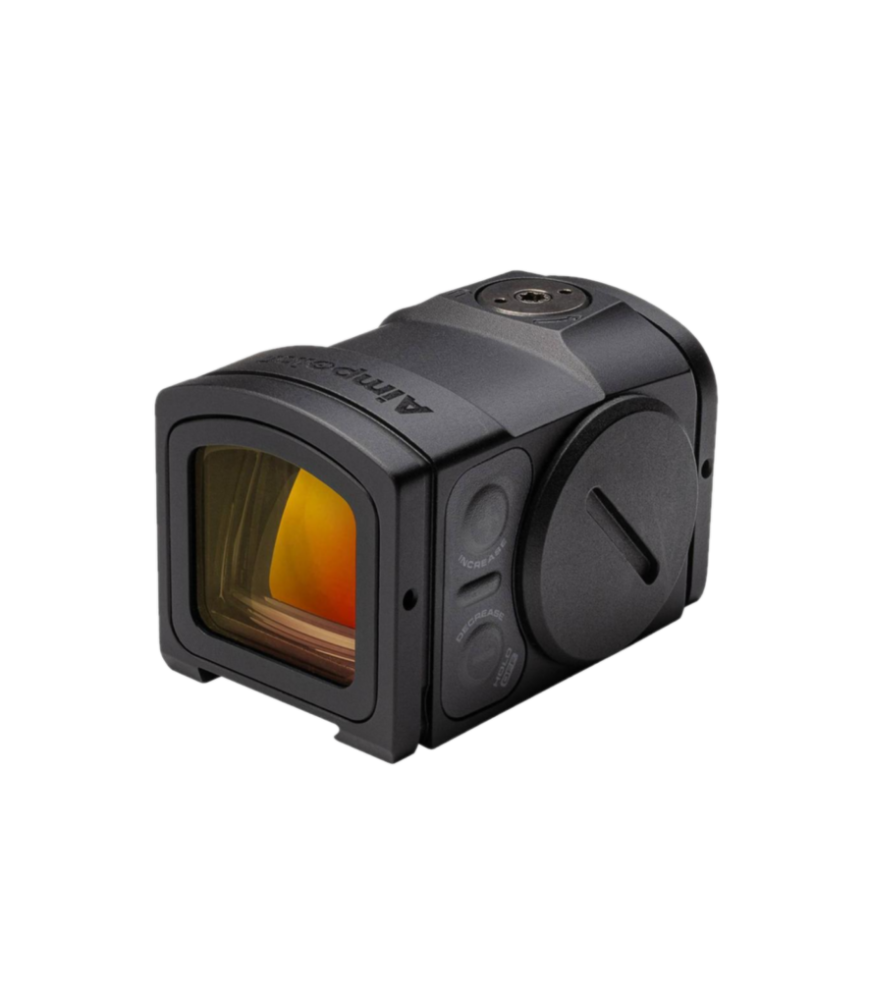






The ACRO P-2 was introduced in 2021 as the successor to the ACRO P-1. It has an enclosed emitter, this means the LED diode is sheltered from elements and debris that could potentially obstruct it.
Although it was intended for pistol use, its ruggedness, footprint and enclosed design make it a good option also for subguns and rifles – not only as a supplementary offset or piggyback sight to LPVO-type optics, but also as a primary optic, especially on compact weapons.
The ACRO footprint is screwless and provides great resistance, both to recoil and side impacts, something other devices are not so good at.
Its reticle is a 3.25 MOA dot, the same as in the Trijicon RMR RM06.
While having the same light transmission as Aimpoint’s top night vision-compatible devices like the T-2, CompM4 or CompM5, the window of the ACRO is smaller than all these sights and has a thick frame, so it doesn’t look quite as clear under night vision.
The P-2 has already found its way to serious professional use, including in the UK’s Ranger Regiment and Royal Marines Commandos.
What are the differences between the ACRO P-1 and P-2?
- The P-1 uses CR1225 batteries, the P-2 uses CR2032, just like the T-2
- The P-1 has a battery life of 15,000 hours, the P-2 has 50,000 hours
- The P-1 uses a lower profile button layout
- The P-1 is 1 mm thinner due to the battery type
- The P-1 has a clear aperture of 16x16mm, the P-2 has 15x15mm
- The P-2 has an upgraded LED emitter which theoretically gives better brightness
- The P-2 is compatible with lens covers and kill-flash or anti-reflection devices (ARDs)
- The P-2 shell has upgraded cosmetics
What are the differences between the P-1 and the C-1?
- The P line stands for ‘professional’ and is intended for hard duty/defensive use. The C stands for ‘commercial’ and is more geared to hunters and recreational shooters.
- The P line has a light transmission of 70%, the C has 60%.
- The P line has 4 night vision modes, the C has 2.
- The P is tested to much higher standards regarding weather, water, vibration and impact resistance.